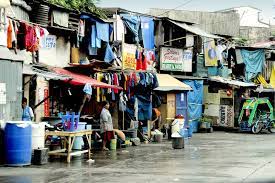
Squatters’ Rights Explained: Protecting Property Possession
Squatters’ legal rights, often known as adverse property, are already a popular subject matter for most decades. This concept allows individuals to acquire management of the house should they have been dwelling onto it for any specific period of time, dependant upon the jurisdiction. This legitimate basic principle may seem simple, but the particulars engaged are complicated and sometimes misunderstood. When you are interested in learning squatters rights, read on this thorough information for more information on this topic.
What is Negative Ownership?
Unfavorable ownership can be a lawful concept that enables individuals to take possession of your house by occupying it to get a specific length of time with no owner’s consent. Generally, someone should inhabit your property for at least ten years for negative thing to take place. To achieve possession of any residence, several circumstances should be satisfied, including the truth that the patient must have unique property from the house, no approval was of course through the manager, and the individual’s possession of your house was wide open and continuous.
What Problems Play a role in a prosperous Squatters’ Claim?
Productive squatters’ claims depend on many aspects. To achieve possession, the property’s thing needs to be genuine, constant, unique, notorious, dangerous, open, and obvious. It will also take place without having the owner’s approval. When someone statements an negative ownership assert of your residence that satisfies every one of these needs, then this squatter’s state can be legally valid as well as the specific can get acquisition of the home.
What type of Attributes Can be Squatted?
Squatters’ proper rights usually do not relate to all types of qualities. Public lands and industrial qualities cannot be squatted. Only homes that are owned privately and are not employed often might be squatted. These sorts of attributes are at risk of squatters’ legal rights resulting from long term unfilled or deserted components that haven’t been managed or resided in for many years.
Preventing Squatting on Your Property?
Should you be a property proprietor, protecting against squatting on your property is imperative to prevent authorized problems and issues. You are able to protect against squatting by keeping the property well-preserved, by checking the house frequently, and getting vigilant. Steady assessments can help identify any prospective red flags. Additionally, you can also lease contract the home if you do not have use for it to prevent adverse property.
In a nutshell:
Squatters’ legal rights are interesting to look at as being a legal principle, and complicated within its software. This extensive information on squatters’ legal rights ought to have supplied an insight into this legal concept and its particular sophisticated doing work. Should you be a house manager, it is very important make your property up to date and under repeated observation in order to avoid any undesired squatters. Squatting is rarely a great scenario for your proprietor or even the squatter since it can result in complicated legal issues. For that reason, it is better to accept the essential precautions and appreciate home possession.